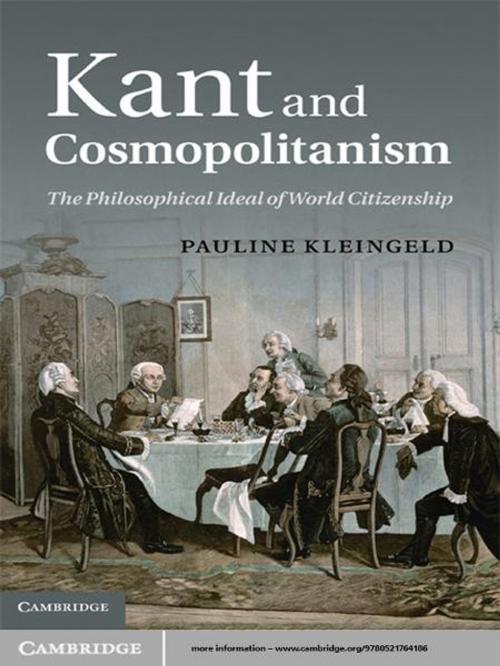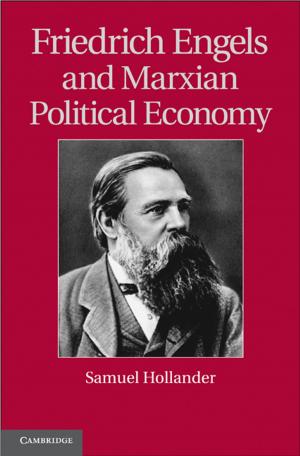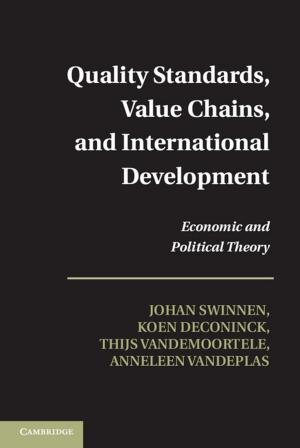Kant and Cosmopolitanism
The Philosophical Ideal of World Citizenship
Nonfiction, Religion & Spirituality, Philosophy, Modern| Author: | Pauline Kleingeld | ISBN: | 9781139199513 |
| Publisher: | Cambridge University Press | Publication: | November 10, 2011 |
| Imprint: | Cambridge University Press | Language: | English |
| Author: | Pauline Kleingeld |
| ISBN: | 9781139199513 |
| Publisher: | Cambridge University Press |
| Publication: | November 10, 2011 |
| Imprint: | Cambridge University Press |
| Language: | English |
This is the first comprehensive account of Kant's cosmopolitanism, highlighting its moral, political, legal, economic, cultural and psychological aspects. Contrasting Kant's views with those of his German contemporaries and relating them to current debates, Pauline Kleingeld sheds new light on texts that have been hitherto neglected or underestimated. In clear and carefully argued discussions, she shows that Kant's philosophical cosmopolitanism underwent a radical transformation in the mid 1790s and that the resulting theory is philosophically stronger than is usually thought. Using the work of figures such as Fichte, Cloots, Forster, Hegewisch, Wieland and Novalis, Kleingeld analyses Kant's arguments regarding the relationship between cosmopolitanism and patriotism, the importance of states, the ideal of an international federation, cultural pluralism, race, global economic justice and the psychological feasibility of the cosmopolitan ideal. In doing so, she reveals a broad spectrum of positions in cosmopolitan theory that are relevant to current discussions of cosmopolitanism.
This is the first comprehensive account of Kant's cosmopolitanism, highlighting its moral, political, legal, economic, cultural and psychological aspects. Contrasting Kant's views with those of his German contemporaries and relating them to current debates, Pauline Kleingeld sheds new light on texts that have been hitherto neglected or underestimated. In clear and carefully argued discussions, she shows that Kant's philosophical cosmopolitanism underwent a radical transformation in the mid 1790s and that the resulting theory is philosophically stronger than is usually thought. Using the work of figures such as Fichte, Cloots, Forster, Hegewisch, Wieland and Novalis, Kleingeld analyses Kant's arguments regarding the relationship between cosmopolitanism and patriotism, the importance of states, the ideal of an international federation, cultural pluralism, race, global economic justice and the psychological feasibility of the cosmopolitan ideal. In doing so, she reveals a broad spectrum of positions in cosmopolitan theory that are relevant to current discussions of cosmopolitanism.















